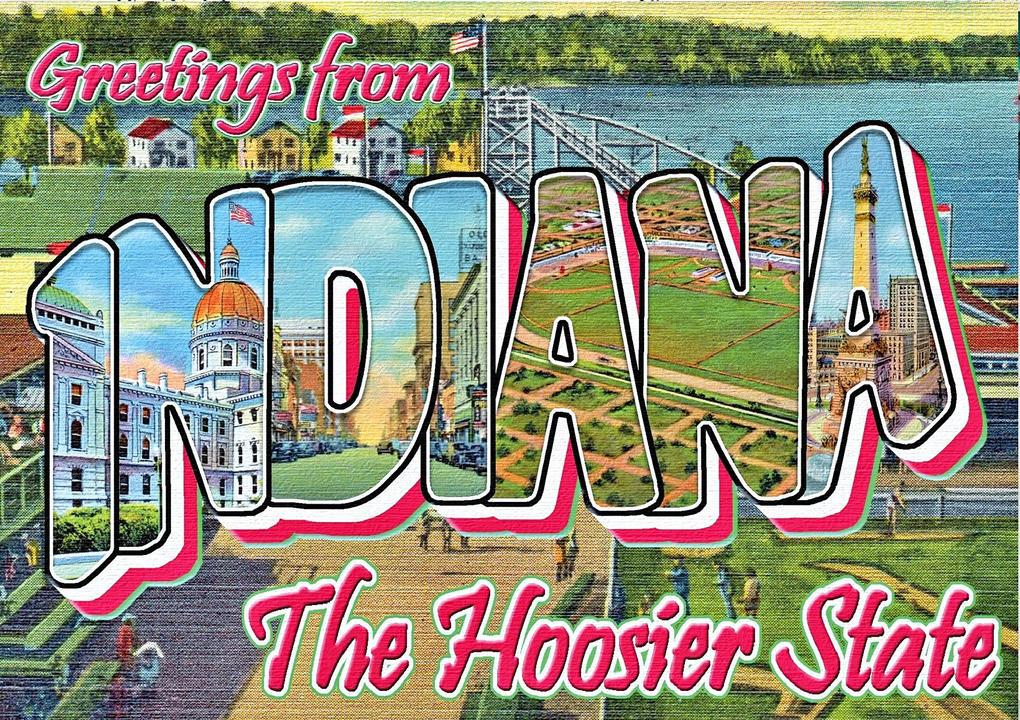
I recently finished reading “Technofeudalism: What Killed Capitalism” by Yanis Varoufakis, the former Finance Minister for Greece. (For an extensive interview with the author, see Wired Magazine.) It is a sobering look at what has slowly been happening in our global economy since the housing crash of 2008. As the book description explains, “Big tech has replaced capitalism's twin pillars—markets and profit—with its platforms and rents. With every click and scroll, we labor like serfs to increase its power.”
As I sit in my home amidst the woods of rural Indiana, big technology can feel far away. Yet I am listening to the hum of my air conditioner during a rising heat wave predicted to hit near 100 in mid-June. I’m typing my thoughts onto a laptop, connected to the internet, connected to cloud computing storage, which will eventually make its way to an online program for the purpose of drafting a newsletter. I have willingly subscribed to this app and others and, in some cases, paid a monthly or yearly subscription. Each one captures data. The final document will later be shared across social media platforms, again with my full participation, in hopes that others, with their full participation, will like, share, and subscribe. We know the drill.
At the same time, I am notifying friends, neighbors and loved ones who find themselves living or working within Duke Energy’s monopolistic territory that they need to show up on June 20th (in Bloomington) or June 27th (in Fishers) to speak loudly against Duke’s proposed $42/mo. energy rate increase at the Indiana Utility Regulatory Commission (IURC) public hearing. This increase, in addition to Centerpoint Energy’s proposed $47/mo. increase, would deal a crushing blow to families, especially those on fixed income. For my aging parents, on Centerpoint for gas and Duke for electricity, an additional $80/mo on utilities would have to come from somewhere else, most likely food or medicine.
These same investor-owned utility companies, crying out for increased rates because their over $450 million/yr profits are just not enough, tell legislators that they can easily accommodate energy-guzzling commercial customers without having any undo effect on residential customers and small business owners. Not to mention the continuing incentivization of deferred, exempted, or abated taxes at a time when local municipalities are increasing taxes to meet infrastructure demands.
If I didn’t know any better, I would think those investor-owned utility companies were talking behind closed doors with other investor-owned global behemoths and introducing them to certain (investor-owned?) Indiana legislators who continue to put profits over people.
“Lawmakers in 2019 approved a sales and use tax exemption aimed at luring in data centers, wiping out those taxes on purchases of qualifying data center equipment and energy. Projects worth less than $750 million qualify for 25 years of the exemption, while pricier initiatives can qualify for up to 50 years.” - Data centers are choosing Indiana. Is the state’s electricity supply ready? - Leslie Bonilla Muñiz, The Capital Chronicle
It should also be mentioned that data centers and cryptocurrency operations do not employ very many Hoosiers. Higher paying jobs, yes, but are there enough of them to truly contribute to the tax base and offset these tax exemptions plus environmental costs? The names of these billion-dollar corporations are well known and already have a considerable tax base impact on our state. Google and Amazon are just a couple. Pretty much all the companies highlighted in Technofeudalism have been offered extensive incentives to locate operations here. It feels like these corporations are playing 5D chess while our state legislators are playing checkers and calling themselves clever.
Who ultimately will profit from these businesses? When business deals are made, do they consider the long-term environmental impact (for example, the continual cost of coal ash cleanup)? When talking about “ample water supply”, does that mean potable water that then becomes contaminated? Where is the cost/benefit analysis for childhood cancer due to environmental contaminants? Who will want to live in Indiana after those 25-50 year tax incentives expire?
I struggle with understanding an extraction economy where there is seemingly an endless supply of resources…until there aren’t. Cryptocurrency mining is another significant energy and water consumer for whom Indiana has rolled out the red carpet. What is to prevent corporation after corporation using lax environmental regulations to specifically target Indiana for their extractive business model?
I tell people how harmful the oft-heard statement, “Indiana is a fly-over state”, can be. When I lived out of state, it made me feel small. Insignificant. What should worry all is the race to become “significant” to a nation that has too long ignored Hoosiers. Are we selling ourselves to these new “feudal lords” who will use our resources and labor with no intent to invest in or protect the things we love? They are not investing in us; they are using us for their profit!
We need state legislators who will not sell us out for short-term gain. I am committed to renewable energy and building a sustainable economy that respects our finite resources. I am committed to building an ethical economy that invests in our future, for our future. This November, we must all vote for the future we want to build. The time to act is now. Come build with me!
[To continue reading this issue of Mondays with Michelle, go to https://mailchi.mp/9a5548cf1d7e/mondays-with-michelle-11572461 ]
